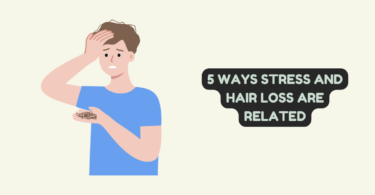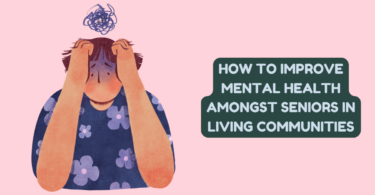
Therapist
Therapy has been around since ancient times, and there are still many myths about it. Some people think that seeing a therapist is something only someone with severe emotional problems needs. Others believe that it’s just for children and teenagers. But today, we live in a very different world where therapy is becoming increasingly popular. In fact, according to the National Alliance on Mental Illness, one out of every five Americans receives some form of mental healthcare. And although therapy can indeed help people with serious conditions like depression and anxiety, anyone can benefit from talking to a professional. Here are eight ways everyone can benefit from seeing a therapist.
Deal With The Past
We’re all shaped by our past — something minor like a fight with a friend or something major like a traumatic experience. But what happens when those events affect how we view ourselves now? What happens when they color how we see others? How do we move forward?
Psychologists say that dealing with the past helps people grow. In short, it gives us a better understanding of our emotions and behaviors. And in turn, it allows us to make changes in our lives.
A therapist can help you examine the past and determine where those issues lie. They can help you understand why you feel the way you do and give you tools to change.
Understand Your Emotions
When stressed out, our body releases hormones like cortisol into our bloodstream. Cortisol makes us feel anxious and causes us to lose sleep. We might even experience headaches or stomach aches. Our bodies are designed to deal with stressful situations, but too much stress can cause health problems. This is why seeking guidance from the inegrated healthcare service is important.
The good news is that there are ways to work around the negative effects of stress. You just need to learn about it. There are many different types of therapy. Some focus on specific issues, such as depression, while others look at overall well-being.
Therapy can be helpful for anyone who feels overwhelmed by their feelings. Whether you want to understand yourself or someone else better, therapy can help.
Learn Healthy Coping Mechanisms
Many people come to counseling because they’ve tried other unhealthy ways to cope with life’s challenges. They might drink too much alcohol, use drugs, gamble excessively, overeat, or engage in compulsive behaviors. Some people feel depressed or anxious about what’s happening in their lives. Others deal with relationship problems, financial difficulties, physical health concerns, family conflicts, work pressures, or even grief.
There are many different types of therapies out there. Cognitive behavioral therapy (CBT), dialectical behavior therapy (DBT), acceptance and commitment therapy (ACT), mindfulness techniques, and others are examples of some of the most common forms of talk therapy. There are lots of options, and each one works differently.
The goal of talking therapy isn’t to improve everything overnight; rather, it teaches you how to identify and change problematic patterns in your thinking and behavior. You’ll learn how to manage stress effectively, improve relationships, overcome addictions, gain insight into yourself and your situation, and find meaning in life again.
You’ll see positive changes in your life over time. As you practice healthier habits and develop new skills, you’ll become stronger emotionally, mentally, and physically. Your moods will stabilize, and you’ll experience less anxiety and depression. You’ll enjoy greater clarity and self-confidence.
In short, learning healthy coping strategies will give you the tools you need to live happier, healthier, and more productive lives.
Help Strengthen Your Relationships
If you’re stressed out about relationships, there are ways to make things easier. Therapy is one way to do that. Research suggests that couples therapy can improve communication skills, reduce conflict, and strengthen relationships.
Relationship counseling can help you understand what makes your partner tick and why he or she does certain things. This helps you figure out how to talk to each other without hurting feelings.
You might think that you know everything about your significant other, but maybe you haven’t considered some important aspects of his or her life. A good therapist can give you insight into those areas.
Therapy can also help you work through problems together. Sometimes people try to solve conflicts themselves, but that rarely works. Research suggests that working through disagreements with someone else can lead to greater understanding and stronger bonds.
Couples therapy can offer many benefits. For example, studies suggest that couples who attend therapy sessions report being happier in their relationships. Therapy encourages both parties to open up and discuss sensitive topics.
Deal With Grief
Losing a loved one is never easy. Death leaves us feeling empty and alone, whether it’s losing a parent, spouse, child, sibling, or friend. We often feel like we’re living in a constant state of mourning, trying to figure out how to move forward while still remembering what we’ve lost.
If you are experiencing the loss for the first time, you might struggle to understand why something happened. You might wonder whether you did anything wrong or if you could have done something differently. Or maybe you just don’t know what to do next.
Grief counselors can help you learn how to process your emotions and come to terms with the loss. They can teach you how to deal with the pain and sadness you experience and help you make sense of the situation.
Help You Solve A Problem
Therapy often involves talking about problems and how to deal with them. This helps people understand why they are having trouble dealing with certain things. For example, someone might talk about how they feel sad because they lost a job. Therapists can help you figure out what triggers those feelings and how to cope with them better.
A therapist can help you gain insight into the situation. When you see a therapist, you’ll likely discuss your thoughts and feelings about whatever is bothering you. Sometimes, therapists will ask questions to help clients think about something differently. For example, a client might tell her therapist she feels depressed because she doesn’t like herself very much. Her therapist might ask her why she thinks that way and whether there are ways she could change her mind. By thinking about the problem from another angle, the client might realize that she likes herself. She just needs to work harder at being nicer to herself.
Once you’ve gained some clarity and a new perspective on the topic, it can help make solving the problem easier. For instance, once you realize that you do like yourself, it makes it easier to accept compliments and encourage yourself to behave nicely toward yourself.
You Won’t Feel Alone
Depression and anxiety often go hand-in-hand, making it hard to distinguish one from the other. But the two conditions have some key differences, including how each impacts your social life.
While both can cause feelings of isolation, depression tends to manifest in ways that impact your relationships with others. Anxiety, meanwhile, causes you to worry about things that aren’t happening; it doesn’t necessarily affect your ability to connect with others.
The good news is that talking to someone about what you’re experiencing can help. Talk to a friend, family member, or trusted professional if you feel isolated. They’ll be able to help identify whether you’ve got depression or anxiety and guide you toward treatment options.
Deal With The Future
Life is a rollercoaster. You’ll experience ups and downs, good times and bad times. There are no guarantees about what’s coming next. We’ve all had our fair share of struggles. They’re part of being human. Some people might even say we’re built for it. And some people don’t handle stress very well. This doesn’t mean there’s anything wrong with them; it just means that they’re different.
Therapy can help you learn how to manage stress better. If you know how to cope with stressful situations, you’ll be able to use that knowledge in the future. Therapy teaches you skills to help you deal with the future.
Conclusion
There are so many reasons to consider seeing a therapist. You might want to explore how to cope with stress and anxiety, work out some emotional baggage, or even learn how to deal with social situations better. Therapy doesn’t always involve talking about painful memories. Sometimes it involves simply learning to relax and focus on something else.
You needn’t suffer from a mental illness to benefit from therapy. There are plenty of ways to use therapy to help themselves.
If you’re struggling to find motivation, therapy could be exactly what you need. Many therapists specialize in helping clients overcome addictions, including alcohol, drugs, gambling, shopping, sex, food, etc. They can also help you manage depression and anxiety.
The stigma around seeking professional help for mental health issues is starting to fade. More and more people are opening up about their struggles and sharing stories about overcoming obstacles. This is great news for those who struggle with mental health issues because now more people know that it’s possible to live a happy life despite having a difficult past.
Finally, therapy isn’t just for the mentally ill anymore. People of all ages are turning to therapy to learn coping skills, develop healthier relationships, and improve their overall quality of life.






